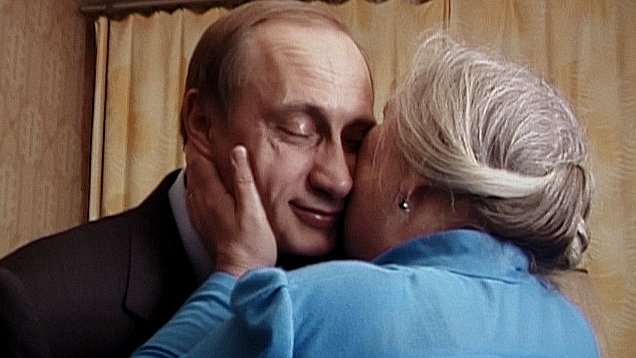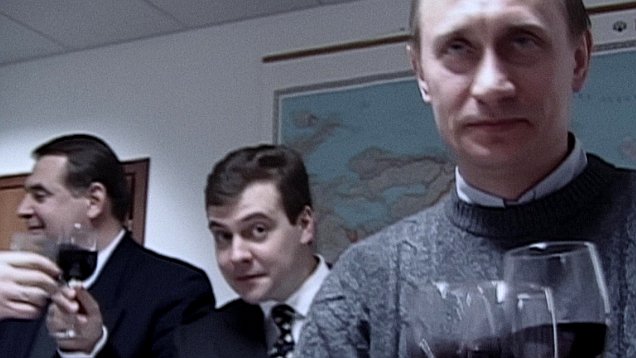The rise of Vladimir Putin is under the spotlight in the chilling Putin’s Witnesses

On the ground at the Adelaide Film Festival, critic Blake Howard reviews a chilling new documentary about the presidency of Vladimir Putin, from a director who once considered himself one of Putin’s earliest supporters.
Putin’s Witnesses opens with home video. We watch a family experiencing the turn of the 21st Century. The President of the Russian Federation, Boris Yeltsin, addresses the nation for his New Year’s Eve message and unexpectedly resigns. This surprising turn of events initiates the custodianship of the Presidency from then Yeltsin protege Vladimir Putin.
Filmmaker Vitaly Mansky captures the raw, instinctive feelings of his family that this action is about to trigger a slide back to autocracy and that the world is about to be afraid of Russia again.
Who is Vitaly Mansky? Mansky is a self-exiled documentary filmmaker of the Russian Federation at the turn of the 21st century. Cataloguing events from inside the Kremlin from December 31, 1999, Mansky originally produced a state-sponsored documentary shown on Russian television, which gave a behind the scenes view of Putin’s early days in office.
Putin’s Witnesses is Mansky quietly interrogating (through the means of eerily quiet and cold voice-over narration) his earlier film, with the additions of lengthy behind the scenes moments that were left on the cutting room floor. He probes how the Putin who assumed power in the year 2000 could have transitioned into the dictator that we know today. Mansky is as much interrogating his own culpability, reinforcing Putin’s propaganda as the culpability of the Russian people.

This startlingly candid film features Yeltsin’s role in the succession, Putin’s early (and hopeful) aspirations in the job and final President of the Soviet Union, Mikhail Gorbachev’s, essential excommunication from Russian political life. Despite the grainy and ugly video footage, there’s a Shakespearian gravitas to the participants. Putin’s calculations, gently leading the discourse from the importance of the rights of the people to the strengths of the state continue to echo across the globe to this day.
Yeltsin is a tragic figure here. He’s the architect of what has become known as operation “successor,” so that he could give Putin the opportunity to have three months in the role of President before the election to demonstrate that he was the man for the job. We learn that, via a slip of the tongue, Yeltsin reviewed twenty candidates before settling on Putin and groomed him for the leadership.
Yeltsin took deep pride in Putin’s emphatic election victory. From his decadent retirement in his family home, this titan is now a patient grandfather who’ll allow his speeches to be interrupted by his grandson. In only a year, watch the transformation as Yeltsin’s face becomes lined with regret; he’s reading the signs that we’re all too familiar with. He even goes as far to describe Putin’s Soviet leanings as the disdainful “reddish.”
In one of the most potent scenes in the film, Mansky shows the jubilant (in Russian terms) victory scenes in Putin’s party rooms. As we’re scanning through the overjoyed political campaigners, Mansky begins to outline the fate of the key players. Today almost all of them have transitioned to Putin’s opposition, been exiled or imprisoned or are dead. Russian filmmakers like Mansky making documentary films that so directly engage with the inherent corruption of those people in power fills this critic with both dread and admiration.

















